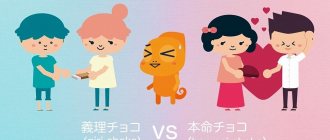Most of us, finding ourselves in a society where we know virtually no one, experience some discomfort. Some suffer from embarrassment, fear and feelings of inferiority; for others, this test is accompanied by arrhythmia, indigestion or headache. Such conditions are caused by our personal psychological and mental problems. Many, having discovered such manifestations in themselves, turn to psychologists and psychotherapists for help, thanks to whom they learn to control negative reactions or even get rid of them completely. However, there are people who solve such problems in a completely different way: hikikomori are hermits in modern society. They break off all social contacts in the real world and completely withdraw into themselves or into virtual reality.
Without working or studying anywhere, most of them are dependent on their parents. In this article we will try to understand who hikikomori are, what reasons bring people to this community, as well as the characteristics of this subculture and its impact on the individual.
When and where did hikikomori appear?
Every developed society, no matter in what part of the world it is located, requires its members to meet certain standards and requirements. In Japan, unlike most other countries, society expects parents, and they, in turn, children, to meet social standards. For the Japanese, this is, first of all, successful studies, a high score on tests, thanks to which they can begin climbing the career ladder, as well as emotional restraint, perceived by Europeans as coldness. In the late 70s of the last century, the first hikikomori appeared in Japan.
These are young and not so young people who are tired of meeting the expectations placed on them by society and family, wearing masks that are unusual for them and playing imposed roles. In order to avoid social contacts and interactions, hikkis, as modern hermits are called, retire to their room.
Work for hikikomori
The life of a hikikomori is complete self-isolation from society, when all social contacts are cut off or maintained on social networks. One important aspect of successful socialization is work, but hikikomori reject any work activity and do not see the point in it. All values that are important for an ordinary person are not interesting for a hickey. In Japan, 10% of the working population has been staying at home since adolescence and does not attempt to find a job, being dependent on their parents. Often people become hikikomori because of unsuccessful attempts to find a job.
The cultural basis of this phenomenon
When understanding what hikikomori is, we should note the historical and cultural roots of this phenomenon. The Land of the Rising Sun was closed from the Western world until the mid-19th century. Japanese culture is quite specific. Loneliness here is seen as a manifestation of asceticism and knowledge of oneself and the world around us in solitude. This is a certain stage necessary for human development. That is why many Japanese perceive hikki as continuers of the traditions of hermits of bygone centuries.
Why do people choose this lifestyle?
Reclusion is not a new phenomenon at all. In all ages, people have chosen to spend several days, weeks, months and even years completely alone and without contact with the outside world. There are three possible reasons why a person might become a recluse. The first reason is the need for spiritual rebirth. In Tibet, India, Israel and other countries where religious and spiritual practices are common, such withdrawal from the outside world is a very common occurrence. In this way, people dive into themselves and explore the depths of their consciousness.
Unconditional love
There is such a phenomenon in Japanese culture - amae. It is the unconditional love of a mother for her son, which to a certain extent contributed to the emergence of hikikomori. Qualities such as constant care for your child and maternal virtue are valued above all in Japanese women. Japanese women are ready to accept their child and sympathize with him, no matter how old he is: 5 or 35. For a Japanese mother, it is easier to cook and put food on the threshold of the hikki room than to take him by the hand and take him to a psychologist or psychiatrist.
Hikikomori - who is this?
Hikikomori is a Japanese term that describes young people in Japan who have become socially isolated and have chosen voluntary confinement. They refuse to leave their parents' home. The amae phenomenon - unconditional maternal love for children contributes to deeper isolation: it is easier for a mother to accept her child as he is and feed him, at any age, than to pull him out of the room and send him back to an independent life. Hikikomori is a subculture that has captured many developed countries.
Symptoms of hikikomori
What does hikka mean and how can you suspect a person who is gradually going into self-isolation? Sometimes this happens gradually, but more often suddenly. How hikikomori live, characteristic symptoms of seclusion:
- strive to avoid external influences;
- break off all contacts with friends or have no friends at all;
- They sleep during the day, spend the night at the computer monitor: games, reading comics (manga), watching anime:
- characteristic facial expressions of unhappiness and despondency: the corners of the lips are downcast, there is melancholy in the eyes.
Who's getting hickey?
If a decade ago only the Japanese could tell about what hikikomori is, today more and more teenagers and young people around the world limit their contacts with the real world as much as possible and deliberately drop out of social life.
The reason for leaving for hikki, as a rule, is that a person cannot meet all the requirements that family and school place on him. As in any other country, there are weakened and not particularly socially active children, slow or reluctant to communicate, and simply introverts who feel lagging behind and uninteresting to their peers and teachers. They would like to meet parental and pedagogical expectations, but it just doesn’t work out, and they have practically nothing else to do but become a hikikomori.
WHAT THE EXPERTS SAY
Ishizuka Hiro, freelancer for Japan's largest broadcasting corporation NHK
In 2005, we conducted a survey at NHK. According to our calculations, there were 1 million 600 thousand hikikomori in the country at that time. Real hikikomori who cannot leave the house for more than six months. There is also a “light version”, pseudo-hikikomori, who can rarely leave the house, for example to go to the store. If you include them, you get 3 million recluses (the population of Japan in 2013 was estimated at 127.3 million people. - Ed.).
When I was in high school, from 15 to 18 years old, I knew two hikikomori. The first year they went to school, from the second they both stopped and before I graduated from school they never came. Then, I heard, one of them committed suicide. I would not say that they studied poorly. Statistics show that hikikomori are usually the children of highly educated parents. And their parents put pressure on them to study more. And, indeed, hikikomori sometimes study well.
It seems that the Japanese Ministry of Health officially recognized hikikomori as a disease in 1989. Men suffer the most from this disease. According to some data, among hikikomori 75% are men, according to others - 82–83%. Before this, such behavior was called different words, including depression. I did not interact closely with the hikikomori at school, but I heard that they became recluses due to bullying and pressure from outside.
It is very difficult to bring a hikikomori out of seclusion. Sometimes a specialist comes at the request of parents and tries to help. There are commercial companies that do this. They are staffed by psychologists or former hikikomori. There are few such companies because it is not a good business. The company says from the very beginning: “Give us 3 thousand dollars and we will help you.” He receives money, but this assistance sometimes lasts only two or three years. Of course, this is unprofitable. How it is treated: first, a person enters the house and starts talking in front of the door - most often this is a former hikikomori. He talks, sometimes begs the person sitting behind the door. Usually the hikikomori won't open the door, so they end up knocking it down. The most difficult are the first six months. Hikikomori go to groups at this time and, if they feel that society does not accept them, they can return back.
I have not heard that there are real hikikomori in Russia. There are children who almost never leave the house, but not like the Japanese, for six months or longer.
Elena Katasonova, orientalist-philologist, doctor of historical sciences, leading researcher at the Institute of Oriental Studies of the Russian Academy of Sciences, member of the council of the Association of Japanese Studies
Hikikomori is not necessarily a psychological disorder. The fact is that in Japan, young people are very divided. And people simply found a good communication channel for themselves - the Internet. They communicate with each other in thematic communities - it’s just a different way of life. At the same time, they stop ties with society because they are already afraid of being left without that world. Japan is the country with the most youth subcultures in the world. But now youth culture is mainly a computer, Internet culture. And hikikomori is precisely a consequence of this Internet culture.
Of course, there are also psychiatric cases. There are many sexual genres in Japanese pop culture. Anime, manga, computer games - most hikikomori are focused on these things. And some almost go crazy. There were many crimes associated with hikikomori. There was a serial killer who killed several girls. When they came to his room, it became clear that he had lived there for many years without leaving. Although he is more of an otaku than a hikikomori. Otaku are fans of manga and anime, and these concepts overlap.
In Russia, probably, hikikomori is a secondary phenomenon associated with the influence of Japanese culture. And, of course, it is less common here. But our youth are also quite divided: there is no youth policy or culture, which is why young people are attracted to everything bright. But it seems to me that this is so, without particularly deep reasons.
Paradoxically, the boom of Japanese culture came to us after perestroika, and not from Japan, but through Europe and America. They experienced the Japanese boom back in the 1960s and 1970s, and we, as always, very lately begin to get sick with what others have already had.
Oksana Ivanova, school psychologist, specialist in developmental psychology
I can’t say anything about Japan, but, undoubtedly, in our country there are people who stay at home most of the time or even all the time. Because it is not difficult to provide yourself with everything through online stores. This is not always a disease, it depends on the circumstances. If voluntary confinement lasts a short period, say, up to a month, while a person can host other people at home, and then begins to go out for individual meetings, this is a normal situation. This may happen due to a difficult experience, but after some time the person still seeks help or accepts help.
Or, it happens that a person sits at home for a year, working on some project. He doesn't go outside to get involved. Then he finishes his work and begins to interact with society again. He'll probably feel a little uncomfortable when this happens. But what is important here is that the person himself makes the decision that he does the work, and then goes out into the world. If a person sits at home for a long time and does not set any goals for himself, there is reason to think about what is happening to him.
Hikikomori are people who are not ready to take responsibility in the first place for the decisions that need to be made in life. They avoid change. They have a comfortable world, within which everything is clear and interference from the outside is minimal. The desire to avoid changes is usually due to the fact that a person is not very confident in himself. He may not feel the support of other people at an important moment in his life to start doing something for the benefit of society. Therefore, he avoids society in every possible way.
You can notice a tendency towards such a state in advance if you analyze whether a person is telling the truth about himself. Let’s say that proposals to go somewhere together are constantly rejected: headaches, bad weather, business. If you know that this is said constantly and not only to you, this is an alarming signal showing that something is happening to the person. Such defensive lies are the first thing you need to pay attention to, and perhaps you need to offer your help. We have a very cautious attitude towards psychologists. And I know that for many it is easier to get help from friends and acquaintances than to turn to a specialist.
Are hikikomori born or made?
Hickeys are not born; they become them as a result of unsuccessful communication experiences or personal changes as a result of any traumatic events or relationships. Hikikomori syndrome develops over many months, and in most cases years. Negative experiences, various stresses and unresolved problems, gradually accumulating, will eventually lead to the fact that at some point a person decides to hide, to isolate himself from the traumatic reality and relationships in his home or room. No one can answer how long such imprisonment will be, since it depends on the personality and individual mental characteristics of each person.
Causes and risk factors of hikikomori
Hikikomori can have many causes. One of them is pressure to succeed , as in most rapidly developing countries. People take part in the so-called “rat race”, they want to develop, compete, lead a busy lifestyle, without time for rest, sleep and fun. For some people, the bar is set too high, the pressure is too great and they begin to live a life within four walls.
Hikikomori syndrome is also an expression of rebellion and opposition to the traditional model of life .
Risk factors that predispose to hikikomori include bullying at school, poor grades at school, excessive communication at work, lack of effect at work, and aggression.
Research shows that a predisposition to the disorder is given by an apartment in a big city and high dependence, for example, on parents. People who are insecure, intimidated or misunderstood are more at risk of hikikomori.
What do hickeys do?
Hiding from the real world in their room, hickeys read, play computer games, listen to music, program, or just stare at the walls of their shelter. However, most spend their time watching anime or manga.
Hikikomori are often confused between day and night: they sleep from morning to evening, but at night is the time of their activity. Quite often, those who consider themselves hickeys spend a lot of time communicating in chats of various online games, on forums, and on social networks. This is due to the need for communications, as well as the opportunity to create a different, “cooler” and luckier image of oneself in virtual reality than in real life. Among them are freelancers who use remote work opportunities. Some hikikomori go out, but only in the evening or at night to buy groceries or pay bills. But there are also those who rarely leave their room, only sometimes sneaking into the kitchen or toilet. It should be noted that those who consider themselves hikki are fed by their parents, leaving food on the threshold of the room or table.
Quite often, hikikomori, realizing their own difference and the fact that they cannot overcome their problems, hate themselves and their own environment. In some cases, anger and aggression are directed not only at oneself, but also at parents and others.
Who is Hikka
Hikka or hikki is a colloquial abbreviation of the Japanese word " hikikomori ". It translates as “ those who shut themselves up .” Today this is the name given to people who seek solitude and complete isolation. They stay at home, often in a separate room, try not to go out and avoid all personal contact with society, including family.
Today, their only way to interact with the world is the Internet. Moreover, hikkas refuse any career and live either at the expense of their parents or on government unemployment benefits. Such seclusion can last from several months to entire decades.
Hikikomori people are often associated with sociopaths who suffer from major depression or obsessive-compulsive disorder - diseases that have nothing to do with hikikomori ideology. For this reason, before understanding what a hikka is, it is important to establish what he is not.
Hickey in other countries
The largest number of hikikomori today is in Japan; some researchers put figures from 600 to 850 thousand people. This phenomenon is also common in Asian countries with high population densities, such as South Korea and China. In Europe, there are also hickeys, but they are called neet, which stands for “not in employment, education or training.”
Literally translated into Russian it means “not in the field of employment, education or training.” In the USA, people leading a similar lifestyle are called “basement dwellers.”
Economy and culture: the origins of hikikomori
Woodcut of Bodhidharma, Yoshitoshi 1887
Asian countries in general and Japan in particular have long extolled the virtues of being single. Religious figures such as the Buddha, Bodhidharma, and other heroes and prophets of Eastern traditions spent significant amounts of time alone contemplating the nature of the universe (Bodhidharma, the first patriarch of Chan Buddhism, once spent seven years gazing at a cave wall). The Japanese Zen tradition and Shinto before it also celebrated the nobility of solitude, and there are many poems and literary works that illustrate this cultural habit.
You can see the tendency toward loneliness in the history of Japan itself, which only opened up to the rest of the world in the 19th century, and then only under the threat of American naval guns. It seems that isolation in solitude is a fundamental part of the Japanese psyche, and this trend is evident in the disappearance of hikikomori from the modern world.
Schools in Japan have a ridiculous reason for banning freezing girls from wearing tights.
It's admittedly esoteric and perhaps a little romantic. It is not my intention to romanticize this disorder, which has detrimental consequences for both families and individuals and could cause enormous future difficulties for a country that already has its share of demographic and economic problems. The point is that these cultural trends may well be contributing to this phenomenon.
Attitudes toward learning and success likely have a more direct influence on the rise of this phenomenon. If American exams make Russian students laugh, then Japanese tests are simply painful. Progression to each level of the Japanese education system is determined by tests. How a student scores on these tests determines which educational course he or she enrolls in. Ideally, a student should follow a path that will lead him to an elite university such as the University of Tokyo. The most important test of all takes place after school; University entrance exams, the mother of all tests. Aspiring university students have a chance, that's all. The stakes at the testing center are so high that the middle of winter in Japan is widely known as "exam hell." Literally their entire future depends on this ONE test.
Comparison of college education in the US and Japan
Are there hickeys in Russia?
There are not very many real hikikomori in Russia. There are several reasons why this phenomenon has not become widespread. First of all, economic: while the average Japanese family can easily support a hikki, the economic situation of the majority of Russians is such that no neet will last long and will either go to work or “fail” from constant parental lectures. We should not forget the peculiarities of national psychology: in our country people often run away from a problem from home rather than strive to be left alone with it in their own room. Those who consider themselves Russian niits created the hikikomori group VK. Here they communicate with “kindred” souls.
Why do hikikomori often live with their parents?
Some people who choose to live as a recluse cannot do household chores on their own and earn money, so they live with their parents. For example, those who suffer from Asperger's syndrome, autism or schizophrenia, even as adults, need guardianship and care. But people with schizoid personality disorder do not need to live with their parents. They have a separate inner world and can take care of themselves on their own.
Hikikomori: parasite or sufferer?
As a result of all of the above, a completely reasonable question arises about whether a person who has become a hickey feels good and comfortable.
In the opinion of an ordinary person, hikikomori are quitters and lazy people who sit comfortably on their parents’ necks and pretend to be “poor.” Just like among the most ordinary young people living an active and full social life, there are also such among the Hikki, but they are few. Most of these hermits and hermits have problems communicating and interacting with people. It is difficult and even painful for them to be in human society. Some of the hikikomori, judging by the messages they leave on various Internet resources, would like to change and get out of loneliness, but they lack courage, strength and self-confidence. Each hikki requires an individual approach, since among outright parasites there are people with a vulnerable psyche and specific individual characteristics of communication or other characteristics of behavior or development.
What does it mean to be a hickey
Don't leave the room; consider yourself blown. What's more interesting in the world than a wall and a chair? Why leave from there, where you will return in the evening The same as you were, especially mutilated? Joseph Brodsky
This is an excerpt from a poem written by Brodsky in the seventies of the 20th century even before the very concept of hikikomori appeared. Perhaps this is exactly what today's Hickeys think. From the outside, their world, limited by four walls, may seem lonely, but for them it looks different - free.
Most often, hikikomori stay awake at night, spending time in front of computer monitors. They play, communicate, some even work remotely. Some people go out to buy groceries or just take a walk on the streets at night. In general, such a life suits them.
Heuristics - make your consciousness work for you!
Ordinary people are mistaken in thinking that hikki suffer or experience deep depression, dooming themselves to such an existence: depression and suffering for them are behind the door of their fortress, in a world where they need to communicate “live” and meet established requirements.
They live dependent on their parents or relatives, refuse to organize their personal lives and build at least some kind of career. Some even take a shower once every six months.
Is there a way out?
As with most life situations, with rare exceptions, a way out can be found. It will be difficult and even practically impossible to help those hikkis whose psyche is seriously disturbed or some kind of mental disorder is progressing. Today in Japan there are already special centers created by the Hikikomori Rehabilitation Association, where people with similar problems are helped to socialize and establish the communication process.
In Russia, such problems are usually dealt with by psychiatrists, who, through drug treatment and other psychotherapeutic methods, try to “extract” the hickey from his “shell” and teach him to live in society.
Exam Hell
Then, if they pass this monstrous test ( many students spend one to three years preparing for the entrance exam!!!) , the students experience a distinct sadomasochistic pleasure while studying at an elite university. And then, if a person has the misfortune of graduating within the last five years of the collapse of the global economy, they find themselves in the worst job market in modern history.
"Center Test". “Exam hell” for Japanese schoolchildren.
In Japan, it used to be that you finished your studies and got a job at a multinational corporation where you worked for the rest of your life. For the fathers of many hokikomori, work was extremely secure. The careers they began in their youth help keep their sons in exile. Their sons, however, are now graduating into a precarious labor market where “wage earner” jobs are becoming fewer and fewer. Many college graduates end up taking jobs for which they are not qualified.
In Japan, there are fewer and fewer opportunities for young professionals. Not being able to find a good corporate job after university places a stigma on a person that is unlikely to be freed from. To say that Japan's academic, economic environment is competitive is like saying rugby is a rough game or World War II was a minor brawl. You win or you lose. There is no middle ground.
For many who have left this system only to open the last door of achievement and find nothing behind it, is it any surprise that they retreat into themselves? The desire to succeed, and not just to succeed, but to succeed, is too great for Japanese society. Failure leaves them feeling ashamed, as if they are complete and utter losers. And this is happening earlier and earlier. Some of the youngest hikikomori are barely 12 or 13 years old when they first lock their bedroom doors.
The Japanese man was fired for being too smart!
Perhaps this is the crux of the problem: shame. Many Asian cultures embrace the idea of "saving face" . As they say, “the nail that sticks out gets hammered down.” The hammer is a disgrace. In the case of hikikomori, they hide the enormous shame they feel about their failures, real or perceived, by literally hiding themselves from society at large.
Hikikomori in art
The first sign to show hikki in cinema was Daniel Sugawara's 2004 film Tamago. It tells the story of a Japanese boy, Kiyoshi, who lived in the kitchen of his parents' house for more than three years. He only communicated live with his younger sister; all other contacts took place via the Internet. The parents, who were unable to do anything with their son, were ashamed of him and told everyone they knew that Kiyoshi was studying abroad.
After this film, the Japanese managed to romanticize this phenomenon. Just remember such anime about hikikomori as Welcome to the NHK or Yamato Nadeshiko Shichi Henge. In the third part of the film “Tokyo!” — “Shaking Tokyo” — just like in the Cat Girl Kiki film, the main characters are hikki. The main characters of such computer games as Yume Nikki and Silent Hill 4 are true hikikamori in their lifestyle. The famous Japanese writer Ryu Murakami did not ignore this social phenomenon. In his thriller Parasite, the main character, Hickey, slowly but surely approaches the brink of madness.











